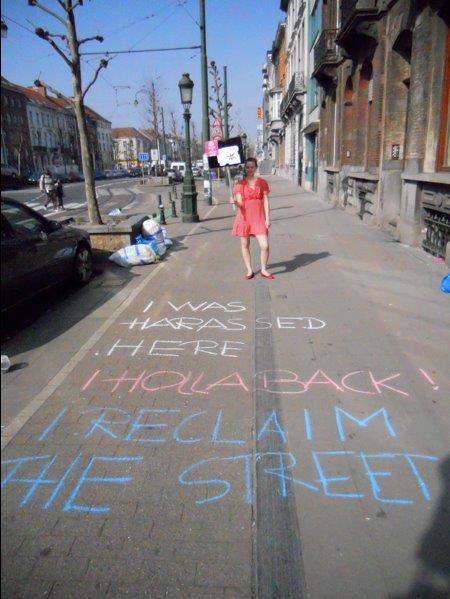During the 16 Days of Activism Against Gender Violence (Nov. 25 – Dec. 10), Stop Street Harassment is featuring activists who took action against street harassment this year, one new country per day.

Day #4: Israel
At the end of 2011, it surfaced that ultra-Orthodox Jewish men were continually calling an 8-year-old a whore as she walked to school in Israel.
To protest and challenge this outrageous behavior, in January, a group of 250 women from Bet Shemesh held a Flashmob in the city square. This was revolutionary because women are not supposed to dance in public.
“[They] decided to raise their voices against the exclusion of women from the public domain by holding a mass public dance in the city square. The women, residents of the city from all ages and sectors, religious, traditional and secular, gathered together in a flashmob dance, in the city square and started dancing towards a change.” – via YouTube




